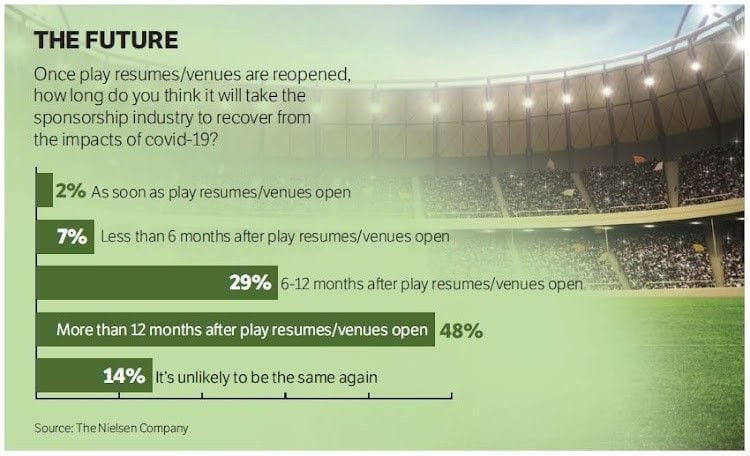
Top stories






More news






ESG & Sustainability
#Sona2026: President announces crisis committee to tackle SA's water challenges








I've become obsessed with crowdfunding over the past 12-18 months, based on our MatchKit.co learnings. We've been fortunate enough to be the recipients of both grant funding and comprehensive mentorship from Rand Merchant Investment Holdings' AlphaCode accelerator program, which challenges us - weekly - to hypothesise and then experiment with our platform's features and relevance to our market.
We launched MatchKit in the midst of hard lockdown in 2020 to help athletes better commercialise their careers - in a bid to accelerate their off-field opportunities - as this was all they had at their disposal to generate revenue in an event-less, fan-less, soul-less new normal.
If you relied on sponsorship budgets to put bread on your table in 2020 and beyond, the likelihood was that you were heading for a starvation diet.
One of our first, low-cost experiments was to convert the built-in charity (Foundation) page of an athlete's MatchKit to the upgraded, word-smithed, Crowdfund page. It cost us no time, money and little effort. The 99% athlete had now become their own charity case - having lost the financial support of sponsors - so it made sense to change the label on our page's package, accordingly.
The startup world is often serendipitous. Sometimes a conversation results in dot-connection that is greater than you could possibly mood-board.
We met the coaching staff of SA Hockey - a sporting body that had been prohibited from competing at the Rio Olympics - based on internal decision makers at SASCOC, even though both the men's and women's teams were ranked number one on the continent. We offered our tech as a platform to showcase the individual hockey player personal brands and the newly-updated crowdfunding opportunity. The team shared their various links, leveraged their personal and professional networks and the crowdfunding campaign gained momentum:
The hype-machine went into overdrive from this moment on, as local and international reporters and influencers were dumbfounded that a national sporting body had to resort to running a crowdfunding campaign, in order to pay for itself to attend an Olympics that it had already qualified for. The coverage peaked when the story made its way onto Carte Blanche - SA's bastion of investigative reporting.
SA Hockey received formal funding to attend Tokyo as well as a cheque for R215,000 from its crowdfunding initiative.
Fast forward to the end of the Games and formal communication was distributed to media (on Women's Day of all days) that our medallists - Tatjana Schoenmaker and Bianca Buitendag - wouldn't be receiving medal bonuses after the precedent had been set at prior Olympics. I called 'bullshit!', or rather tweeted it:
In 2016 Wayde earned R500k for winning gold and an extra R150k for breaking a WR. Chad earned R200k for a silver. By this standard, @TRSchoenmaker should be rewarded with at least R850k and @biancabuitendag R200k. @MbalulaFikile tell @NathiMthethwaSA to get that chequebook out https://t.co/pb2DOa7SdR
— Mike Sharman (@mikesharman) August 9, 2021
R100,000 raised in the first hour and R400,000 a few days later. Some other influential community members and brands entered the fray and within a week, the total, collective effort resulted in a raise north of R1,000,000. If you have ever worked in the agency space, you will understand the hoops you'd have to jump through, and innumerable presentations you'd have to deliver in order to have sign-off on this quantum.
The most inspiring result of this campaign is witnessing the countless athletes - from truly fringe sports - launching MatchKit profiles and running their own crowdfunding campaigns by leveraging their friends, family and SME networks. The likes of a mountain biker who has raised R10,000 per month over two successive months, after her sponsors succumbed to the perils of the pandemic, and a triathlete trying to fund his own way to Bermuda for world champs. We look forward to documenting the tens, hundreds and eventually thousands of athlete stories where their excellence has been aided by this form of digital financing.
According to Fundly, the global amount raised by crowdfunding campaigns in 2019 was in the thirties of USD billion. It was estimated that 6,445,080 crowdfunding campaigns were hosted globally in 2019 and this is expected to triple by 2025.
The world of capital continues to evolve in ways we couldn't imagine just 24 months ago, and with the rise of cryptocurrencies and creative, financial blockchain-based offerings such as NFTs, there are more opportunities than ever for athletes to raise cash.
Investing time and energy in your friends and family who have an emotional connection with you, as opposed to chasing hypothetical backing from brands or sponsors with purses that are more constricted than ever, suggests that crowdfunding or Friendsorship has the ability to level the financial playing field, to ensure you focus on performing at your best, on the field.
